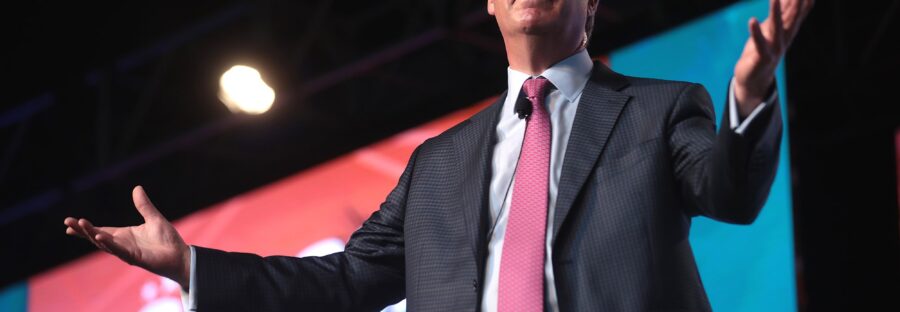Nigel Farage condemned for false ‘minority white’ Manchester comments
- Claims were made in a video posted to Twitter
- Comments have been widely condemned as untrue and divisive
- Farage has a history of making similar comments about Manchester
Featured image: Gage Skidmore
Broadcaster and ex-politician Nigel Farage has been widely condemned after he wrongly claimed that a number of UK cities, including Manchester, are now “minority white”.
In a video published to Twitter, the former UKIP leader alleges that Office for National Statistics (ONS) figures published on November 29 indicate that the cities of London, Birmingham and Manchester have undergone “massive demographic changes” and white populations are now a “minority” in these areas.
The validity of the assertion, with regards to Manchester at least, has been widely disputed by both fact checkers and the media. While Birmingham now holds a minority white population, ONS statistics indicate that 56.8% of city residents identified as white in the 2021 census. Though one of the most diverse counties in the country, the wider Greater Manchester area was 83.81% white according to the previous census.
The former UKIP leader also claimed that in the future ONS will no longer ask respondents their country of birth nor publish data on the subject. ONS describe this as “simply not true” in a statement published on their website.
Farage, who retired from politics last year, has been both condemned for the potential impact of making such false comments. Some Twitter users, including British Asian MP Sajid Javid, responded with ridicule, but others are worried about the consequences of making false statements about ethnic minorities.
Basit Mahmood, editor of Left Foot Forward, accused him of “whipping up moral panic over immigration”.
Warren Gwarazimba, a politics graduate at Manchester Metropolitan University who moved to the UK from Zimbabwe as a child, believes Farage’s comments to be more serious than a simple fact-checking error.
He said: “It increases racist sentiment and makes life harder for ethnic minorities. As a person of colour you can feel the change in attitude or opinion relating to your race.
“People are reacting the way he wants. He wants to stay relevant. Immigration is a trend in the news and those who aren’t clued in will believe [Farage]”.
Farage, a GB News presenter and honorary president of Reform UK (known until 2021 as The Brexit Party) first came to public prominence as leader of the right wing Eurosceptic UK Independence Party in 2006. His national celebrity increased further surrounding the 2016 EU Membership Referendum, in which he was a vocal campaigner to leave the European Union.
While no longer involved in electoral politics Farage remains a significant figure in UK political discourse, known for his hardline views on immigration and nationalism.
It is not the first time he has made controversial comments surrounding race in the Greater Manchester area. In 2019, he told an audience of American students that “entire streets in Oldham are divided across racial lines”. In a speech to the libertarian youth organisation Young America’s Foundation at Pennsylvania’s Lock Haven University, Farage claimed Oldham to be a “divided society… [with] no assimilation”.
His comments were quickly rebuked at the time by Oldham council leader Sean Fielding, and The Mirror labelled his claim about streets divided by ethnicity “dangerous”.
Manchester is growing in general population at a rate faster than other UK cities. Census data from the Greater Manchester Combined Authority shows an overall growth in population of 6.9% in the decade since the 2011 census, compared to an average growth of 6.3% across England and Wales.
Manchester is also one of the most increasingly diverse cities in the country. The share of the population that identify as “White British” has decreased in the last 10 years. The ethnic demographic with the highest growth in Greater Manchester is Asian, which has seen a steady increase over the past four censuses and stands at 10.15% percent as of latest available statistics, higher than the national average of 7.82%.


